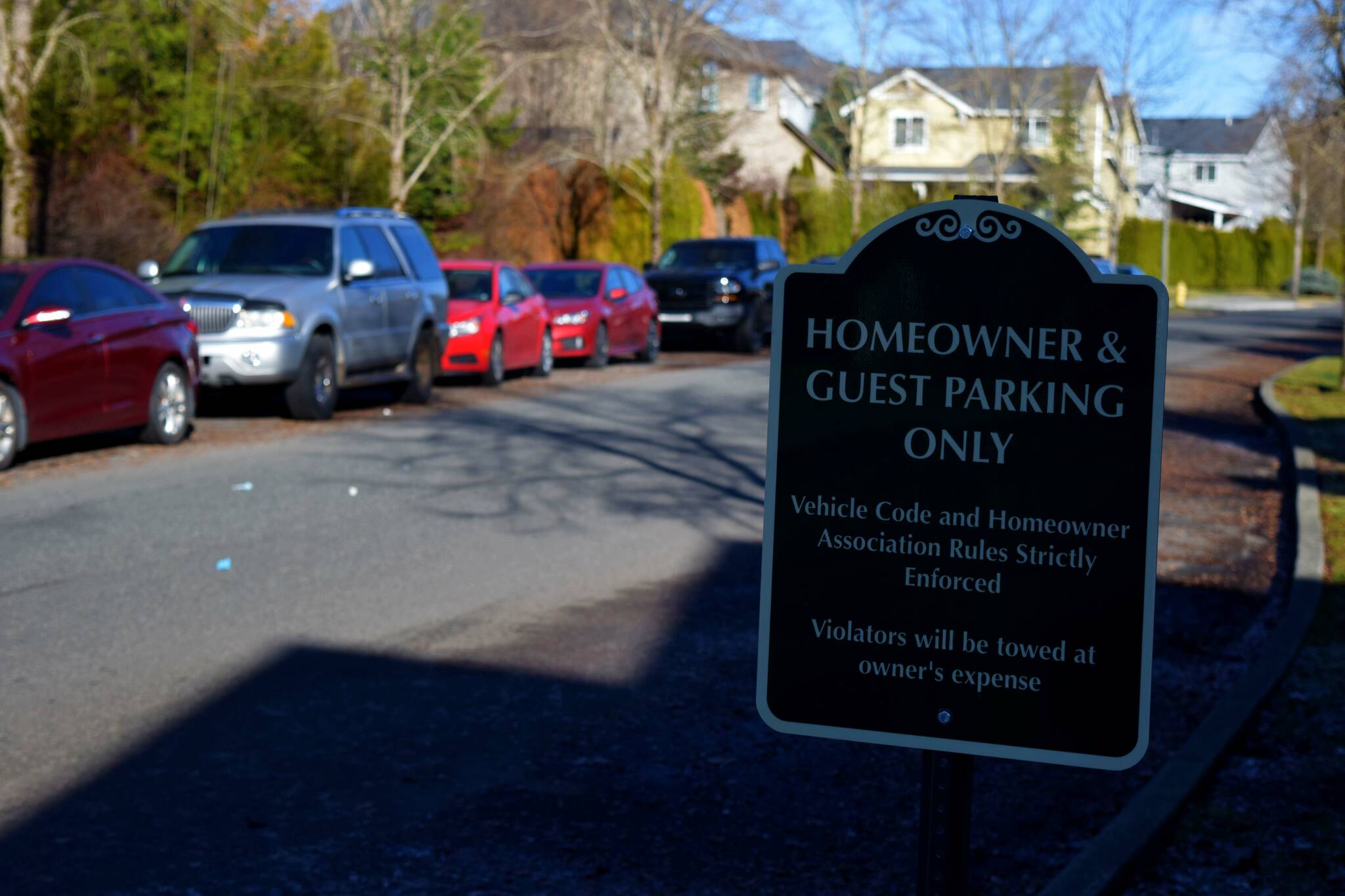Snoqualmie Police are asking the city to close a loophole that makes it difficult for officers to enforce a parking regulation, but the proposal has drawn criticism for targeting a specific street that holds the city’s largest income-restricted housing complex.
Officers are requesting a change to city code that they say would help address problems on Frontier Avenue, where residents of Panorama Apartments — the city’s largest income-restricted housing complex — are parking for prolonged periods to the irritation of some homeowners.
Most of Frontier Avenue consists of single-family homes with rear-facing garages, the only exception being Panorama. Located at the end of Frontier, the 191-unit apartment complex has limited parking for all of its residents, leaving some to park on the street.
That has caused frustrations, with officers saying they have responded to a high volume of parking complaints and 911 calls from homeowners over the past year. Yet, police say there is little they can do under current city code.
While the code outlaws long-term street parking, requiring cars be moved to a new spot every 24 hours, it neglects to specify how far violators have to move, meaning cars can go only a matter of feet and remain in compliance, Snoqualmie Police Captain Brian Lynch told the city’s Public Safety Committee.
“It leaves us very little room for enforcement of the law and we’re missing the spirit of that actual ordinance,” he said. “A lot of times we’re not able to help people who are enduring the problem of limited parking in front of their house.”
Police are asking for a clarification to that law, adding a requirement that cars move to a different block each day. Police say that would help them address problems on Frontier.
The change is intended to provide a stop-gap, until a long-term solution can be implemented. Lynch alleged that part of the problem is that many parking on the road are staying at Panorama as guests, but are not actually on a lease. He said the city is in the infancy of creating a parking permit program to address that issue.
“[With a parking permit] they are registered to that address and the people that park there [as] overflow from Panorama Apartment that are in from Federal Way or Kent or anywhere else in the county would not be able to park there,” he said.
Approving the police’s request would modify the city’s municipal code, meaning it would technically apply to all street-parked cars in the city. But officers made it clear in presentations to the city council that change was prompted to solve issues on Frontier Avenue.
That reasoning did not sit well with some members of the Snoqualmie City Council, who agreed to delay a final vote on the proposal last week. Two councilmembers voiced concerns that the plan targets Frontier and Panorama.
“I find it interesting that we are using this as an opportunity to use our police to target our one affordable housing development,” Councilmember Jo Johnson said. “Just kind of surprised that we wanted to take that route.”
Councilmember Matt Laase also voiced concerns about the process, pushing back against claims that the city was not targeting.
“You can spin it anyway you want, we are targeting a certain area,” he said. “All of this is for one area of the city where citizens of Snoqualmie live — that’s targeting a certain segment of our population. That to me has grave concerns.”
Councilmember Ethan Benson, the only member to vote against the delay, said he did not think the change was targeted, noting Frontier is the only place where a problem exists.
“Because of the way that housing development has been placed, with a single street going into and out of it, we knew this was going to be a problem years ago when the place was built,” he said. “Let’s not pretend that somebody is doing something wrong by trying to take care of it.”
Snoqualmie Mayor Katherine Ross was out of town and unable to respond to the Valley Record’s request seeking her thoughts on the proposal.
City police argue the law gives them another “tool in their toolbelt” to address parking violations. They noted the 24-hour parking rule is already law, and the change would only make it easier to enforce. They added that officers do not go out of their way to mark a violation without receiving a complaint or tow a car without reaching out to the owner.


